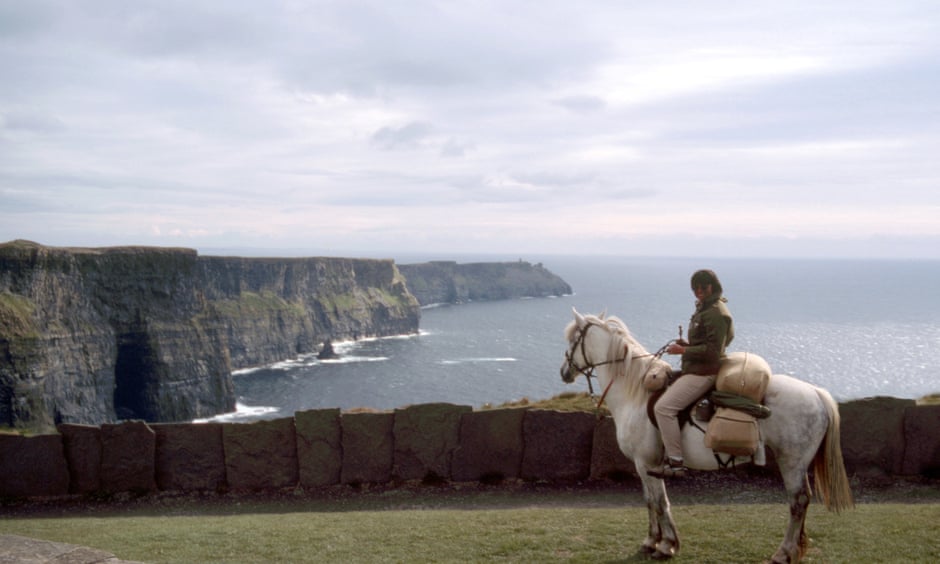 TheGuardian.com - Full Article
TheGuardian.com - Full Article
Hilary Bradt
Mon 12 Jul 2021 01.30 EDT
The guidebook publisher’s dream of a solo horseback trip came true, but proved a greater challenge – and more exhilarating – than she’d thought possible
When did I first make the transition from enjoying horse riding as an accomplishment to realising that seeing spectacular scenery from the back of a horse is an end in itself – slow travel at its very best? I think it was in the Grand Tetons in Wyoming, about as spectacular a place as you can get, but also as tiring as any mountain hike if you’re on foot, with thin air, steep paths and treacherous drops.
On my horse Everest (of course I sent a photo home of Hilary on Everest), I could just gaze unimpeded at the snow-patched mountains, the gurgling streams and the big sky, and soak up the feeling of emptiness. My friend and I stayed on a dude ranch, slept in tents at night and rode an 80-mile circuit on those comfy western saddles. That holiday, in the 1960s, confirmed the rightness of my childhood dream of buying a horse and riding a long, long way...
Read more here:
https://www.theguardian.com/travel/2021/jul/12/why-i-rode-1000-miles-around-ireland-on-a-connemara-pony

